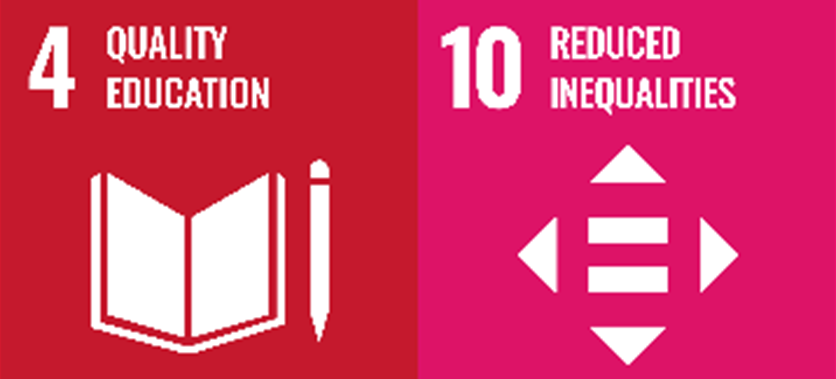Cian Twomey
Assistant Professor in Financial Economics
J.E. Cairnes School of Business and Economics, University of Galway



Cian delivers a wide range of modules across the Discipline of Economics. He is actively involved on several academic committees within the School and has recently been elected to the university's Academic Council.
Cian’s primary research interests are in applied financial economics. In recent years, as Chairperson of Galway's oldest credit union, he has immersed himself in issues relating to financial literacy, wellbeing and financial education.
Cian's work contributes to these SDGs

Teaching

Cian has developed and taught courses at both undergraduate and postgraduate levels across a wide range of topics
Undergraduate modules
EC3016 Behavioural Finance explores the psychological forces that drive market trends and investment decisions and broadens students' awareness of financial decision-making. Supporting Targets: 4.6 Universal literacy and numeracy
EC362 Economics of Financial Markets focuses on global financial markets from an investments perspective. Supporting Targets: 4.4 Increase the number of people with relevant skills for financial success and 9.3 Increase access to financial services and markets
EC369 Money and Banking analyses a range of contemporary issues around the future of money, FinTech versus traditional banking, and central banking. Supporting Targets: 4.4 Increase the number of people with relevant skills for financial success and 8.10 Universal access to banking, insurance and financial services
Postgraduate modules
EC5119 Derivatives and Risk Management explores a range of issues related to derivatives markets and risk management and explores the relevance of operational risk, ESG and ethical issues in risk management. Supporting Targets 4.4 Increase the number of people with relevant skills for financial success; 10.5 Improved regulation of global financial markets and institutions and 12.6 Encourage companies to adopt sustainable practices and sustainability reporting
EC5104 Applied Portfolio Management explores the linkages between portfolio management and modern risk management. Supporting Targets: 4.4 Increase the number of people with relevant skills for financial success and 10.5 Improved regulation of global financial markets and institutions
EC5147 Financial Technology and Economics considers the economic functions of money, financial markets and financial institutions, and then explores how a range of new technologies are changing the provision of these functions in the economy. Supporting Targets: 1.4 Equal rights to ownership, basic services, technology and economic resources; 4.4 Increase the number of people with relevant skills for financial success and 8.10 Universal access to banking, insurance and financial services
Engagement
As the Chair of a local credit union, my role is intrinsically linked to several Sustainable Development Goals (SDGs). Credit unions, by their nature, focus on providing fair and accessible financial services to all members of the community, directly contributing to SDG 1 (No Poverty) and SDG 10 (Reduced Inequalities). By facilitating access to affordable credit, savings and other financial products, credit unions empower individuals, particularly those in underserved communities, to manage their finances, start businesses, and improve their economic standing. This not only reduces poverty but also fosters economic resilience and equality. Moreover, our credit union’s emphasis on financial literacy programmes supports SDG 4 (Quality Education), equipping members with the knowledge to make informed financial decisions and enhance their economic opportunities.
In my involvement on national panels for director recruitment and ESG (Environmental, Social and Governance) for the Irish League of Credit Unions, I advocate for practices that align with multiple SDGs. Promoting diversity and inclusivity in director recruitment supports SDG 5 (Gender Equality) and SDG 10 (Reduced Inequalities) by ensuring that leadership positions are accessible to individuals from various backgrounds. Additionally, my focus on ESG principles ensures that financial institutions operate sustainably and ethically, contributing to SDG 13 (Climate Action) and SDG 16 (Peace, Justice, and Strong Institutions).

Direct impact SDG Targets
1.4 - Equal rights to ownership, basic services, technology and economic resources
4.4 - Increase the number of people with relevant skills for financial success
4.6 - Universal literacy and numeracy
4.7 - Education for sustainable development and global citizenship
8.1 - Sustainable economic growth
8.3 - Promote policies to support job creation and growing enterprises
8.10 - Universal access to banking, insurance and financial services
9.3 - Increase access to financial services and markets
12.6 - Encourage companies to adopt sustainable practices and sustainability reporting
Indirect
8.6 - Promote youth employment, education and training
10.5 - Improved regulation of global financial markets and institutions
17.13 - Enhance global macroeconomic stability

Research

Featured Publications
|
References |
SDGs |
|---|---|
|
Grealis, E., Hynes, S., O’Donoghue, C., Vega, A., Van Osch, S. and Twomey, C. (2017). The economic impact of aquaculture expansion: An input-output approach. Marine Policy, 81, 29-36. |
8; 9; 12; 14 |
|
Corbet, S., Twomey, C. How Have Contracts for Difference Affected Irish Equity Market Volatility? Economic and Social Review. |
10.5 |
|
Twomey, C. et al. (2023). Role of Directors in Credit Unions (CUAC report). Irish League of Credit Unions, Ireland. |
4.4, 4.7; 8.8 |
|
Twomey, C. Quantifying Financial Literacy in Galway. SCCU, Galway. |
1.4; 4.4; 8.10 |
